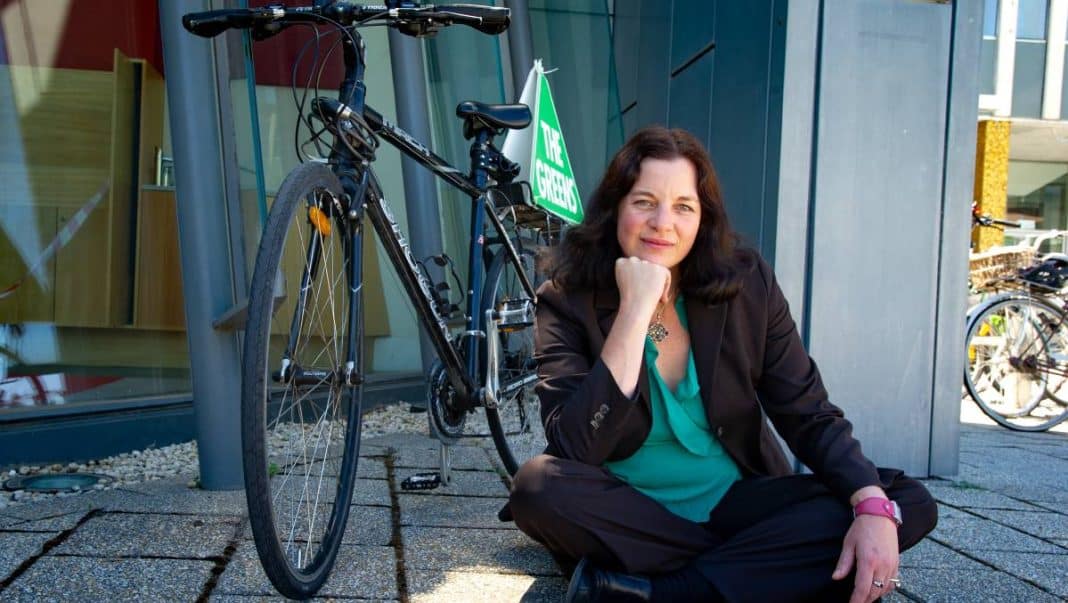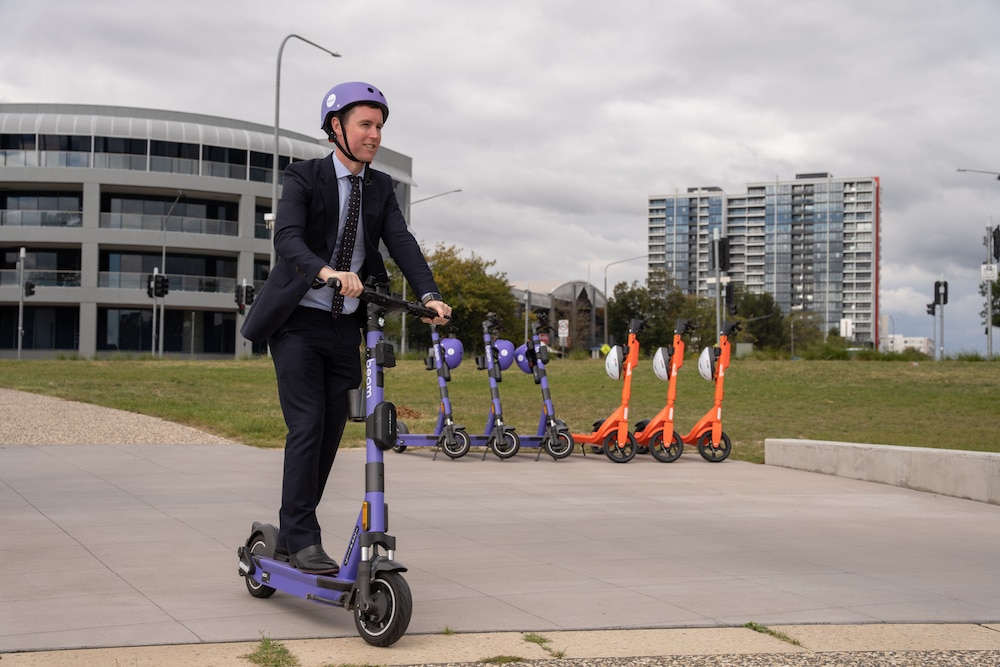The ACT Government is seeking community input on a new Active Travel Plan exploring how Canberrans can ride, walk, scoot, and skate more often, reducing reliance on private cars.
Active travel is a fundamental part of the ACT Government’s plans to improve the liveability and sustainability of Canberra, explains Chris Steel, Minister for Transport and City Services.
“Active travel is key to enhancing the quality of life in our city, and improving the health and wellbeing of Canberrans. Building a walkable and cycle-friendly city will help to reduce congestion and cut harmful emissions. It benefits all Canberrans, no matter how you move around.”
The plan builds on Labor MLA Dr Marisa Paterson’s discussion paper about women’s active travel in Canberra’s south, and Greens MLA Jo Clay’s Active Travel Discussion Paper.
- Why ACT needs more active travel and how to get it: Jo Clay MLA (25th March)
- Greens call for more Federal funding for active travel (24th February)
- ‘Her Way’ is the bike path, Labor MLA believes (11th August 2021)
The plan’s priority is safer infrastructure for walking and cycling, separated from cars.
“We think that this is the fundamental barrier to getting more people active, walking, and riding in Canberra,” Mr Steel said.
The plan also proposes better walking and cycling connections; better end of trip facilities; secure bike parking; pop-up cycleways and walking improvements; protected bike lanes; shared e-scooter and similar hire schemes; bike parking; and repair stations.
“We want to hear from Canberrans on the priorities outlined in this draft plan,” Mr Steel said. “We also want to know the gaps or hotspots in our city’s cycling and walking networks that most need to be improved to make active travel easier and more attractive.
“We particularly want to hear from people who aren’t walking or cycling regularly at the moment. What would it take to get you out of the car, not just on your morning commute, but on a local trip on the weekend?”
A detailed best-practice design guide for safe and people-friendly streets will be released as part of the consultation. This will set out the new design expectations for Canberra’s streets to support walking and cycling in key parts of the city. It will go above and beyond minimum safety standards, employed in the past, which often lag behind best practice.
“In the future, Canberrans can expect to see significant changes to the design of key streets and intersections that make them more reminiscent of European cities – which are safe to walk and cycle,” Mr Steel said.
Canberrans can have their say on the draft Active Travel Plan by heading to the YourSay Conversations website.
You can submit feedback by taking a short survey, sending a submission, or voting for your preferred active travel path priorities through the interactive active travel map.
The survey is open until 24 August.
Greens want more funding for dedicated active travel
Jo Clay, ACT Greens spokesperson for Active Travel, welcomed Mr Steel’s new consultation on active travel, but urged the government to spend more money on dedicated active travel projects, such as bike infrastructure, rather than simply on roads that could accommodate cycling.

“Canberrans love active travel, and understand the need for more of it,” Ms Clay said. “Active travel is not only a great way to keep healthy, it also reduces congestion on our roads for those of us who need to drive.
“Active travel helps out everyone, even those who drive. Every person you see walking or riding is one less car in front of you at the traffic lights.
“But we need to do more to encourage active travel. Before COVID, congestion in Canberra was getting worse at a rate over three times faster than most other cities in Australia. We love talking about active travel in the ACT, but we don’t invest enough on the ground to make a difference.
“I’m delighted to see the Minister’s commitment to separated cycle paths, but his budget allocations don’t add up.
“In June this year, the Minister said he was spending one fifth of our active travel budget on a sealed highway shoulder on the Monaro Highway that can accommodate cycling. This is not dedicated cycle infrastructure. The Monaro Highway shoulder being considered active travel infrastructure is not in line with Australian Standards around safety, and should not count as the single biggest part of our active travel spend.
“Along with the fact that few cyclists will want to share the road on a 100kph highway shoulder, women have told us that they are particularly affected by the lack of safe active travel options in general around our city, and have called for separate infrastructure.
“The Greens want at least 20 per cent of the roads budget to be spent on dedicated active travel projects.
“I heard a need for more funding for dedicated active travel really strongly from the community when I consulted on my Active Travel Discussion Paper in March this year. The money needs to deliver safe, usable infrastructure that will encourage Canberrans to ride, walk, or wheel around our city without having to compete with cars. On paper, it looks like we’re getting close, but the numbers don’t stack up.
“There is some really positive material in the Transport Minister’s Active Travel Plan. I look forward to reading it in detail, and I encourage everyone to contribute via YourSay.”



